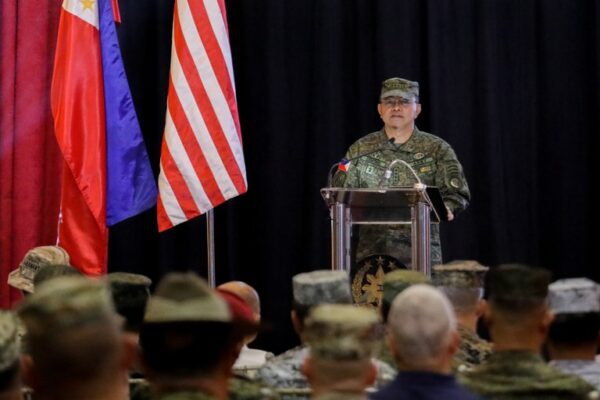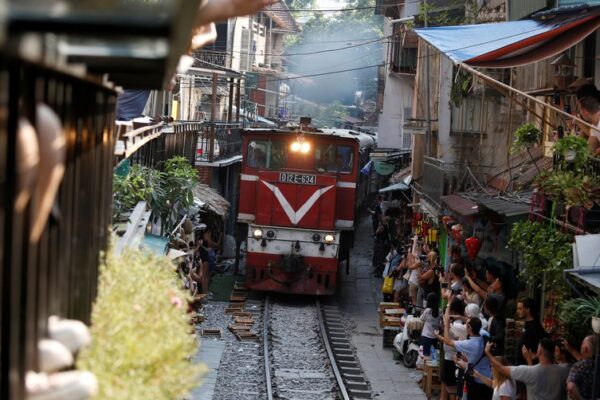
Military stymies rescue efforts at scene of Myanmar strike that killed at least 80
Efforts by workers to rescue the injured and collect the remains of mangled bodies at the scene of a junta air strike that killed at least 80 civilians in Myanmar’s northern Sagaing region have been hampered by troops in the area, sources said Wednesday. Tuesday’s air strike, in which junta aircraft bombed a crowd of hundreds attending an office opening ceremony in Kanbalu township’s Pa Zi Gyi village, is one of the deadliest attacks on civilians since Myanmar’s military seized power in a February 2021 coup d’etat. Witnesses have said that it was hard to tell how many people had died in the attack because the bodies were so badly mangled by the bombs and machine gun fire. As of Wednesday afternoon, rescue workers said they had cremated 83 bodies, including 22 minors. Myanmar’s shadow National Unity Government said that at least 116 people had been killed, including 81 men, 16 women, and 19 minors. Amid the carnage, the military has deployed a surveillance helicopter and stationed troops on the outskirts of Pa Zi Gyi, impeding efforts to collect body parts and bring the wounded for medical treatment, residents said. A villager who declined to be named told RFA that his 10-year-old granddaughter and two 50-year-old relatives were among the victims, but said he had been unable to locate their bodies yet. “More than 30 teenagers are still missing,” he said, adding that he is “sure they are dead.” The villager said that the military had attacked the village multiple times on Tuesday. “That’s why we could not collect all the bodies and were forced to leave them,” he said. Another resident, who identified himself as Ko Myo, claimed that rescuers trying to collect bodies are the only people left in the 100-home village, which was otherwise abandoned by inhabitants he said were left in severe psychological shock by Tuesday’s attack. “There is no one [in the village] since we have had to shelter in safe places,” he said. “We have had to let our herds of goats, cattle and chickens run free. We have left our businesses and shops behind and fled [from the village]. The situation is very bad.” Every family in the village is missing members, he said. Differing accounts The military confirmed in a statement on Tuesday evening that it had carried out a “precision” attack on Pa Zi Gyi because members of the anti-junta People Defense Force paramilitary group had gathered there and “committed terrorist acts” in the area. Junta Deputy Information Minister Major Gen. Zaw Min Tun told the military-controlled broadcast channel MRTV that those killed in the strike were members of the PDF, not civilians, and that the large number of casualties was the result of a rebel weapons cache exploding during the operation. But a rescue worker who spoke to RFA on condition of anonymity, citing security concerns, said that was untrue. The attack on the site was deliberate and thorough, he said, beginning with a jet fighter bombing run and followed by an Mi-35 helicopter strafing the area. “When we approached the scene to rescue the injured people and collect the bodies of victims in the afternoon, [the military] launched another attack,” he said. “So, we can say they attacked three times.” In this April 11, 2023 image grab from a video, a destroyed building structure is seen following Myanmar junta shelling and air strikes on Pa Zi Gyi village, Kanbalu township, Sagaing region. Credit: Citizen journalist Three rescuers were killed during the third attack, the rescue worker said. “There is little we can do and the situation has become extremely difficult,” he added, describing the state of the village’s residents as “panic-stricken.” An official from the Kanbalu township PDF also disputed Zaw Min Tun’s description of the attack, telling RFA that “whenever the junta forces attack civilians, they blame others.” “On the ground, we know best whether [the victims were] PDF members or not,” he said. “There were no PDF members among the victims.” Seeking accountability High Court lawyer Kyi Myint said attacks like Tuesday’s air strike constitute “high treason” in Myanmar and “war crimes” according to international law. “This army is formed by public funds to protect the people, not to kill them,” he said. “Now, they have committed high treason because they are killing people using the funds provided to protect the people.” “According to international law, if a government kills its own people, the perpetrators shall be sent to the International Criminal Court to be prosecuted,” he added. Tuesday’s attack prompted condemnation from around the globe, including from U.N. Secretary-General Antonio Guterres, as well as several Western governments and human rights organizations. Vedant Patel, the principal deputy spokesperson for the U.S. State Department, said the strike and other violent attacks “further underscore the regime’s disregard for human life and its responsibility for the dire political and humanitarian crisis in Burma” since the coup. In a statement, he said that the United States wants the junta to end violence, allow unhindered humanitarian access, and to respect the democratic aspirations of the people of Myanmar. Residents of Pa Zi Gyi village and democracy activists have called for an arms and aviation fuel embargo on the junta to end its use of air strikes in the conflict. Translated by Htin Aung Kyaw. Edited by Joshua Lipes and Malcolm Foster.






